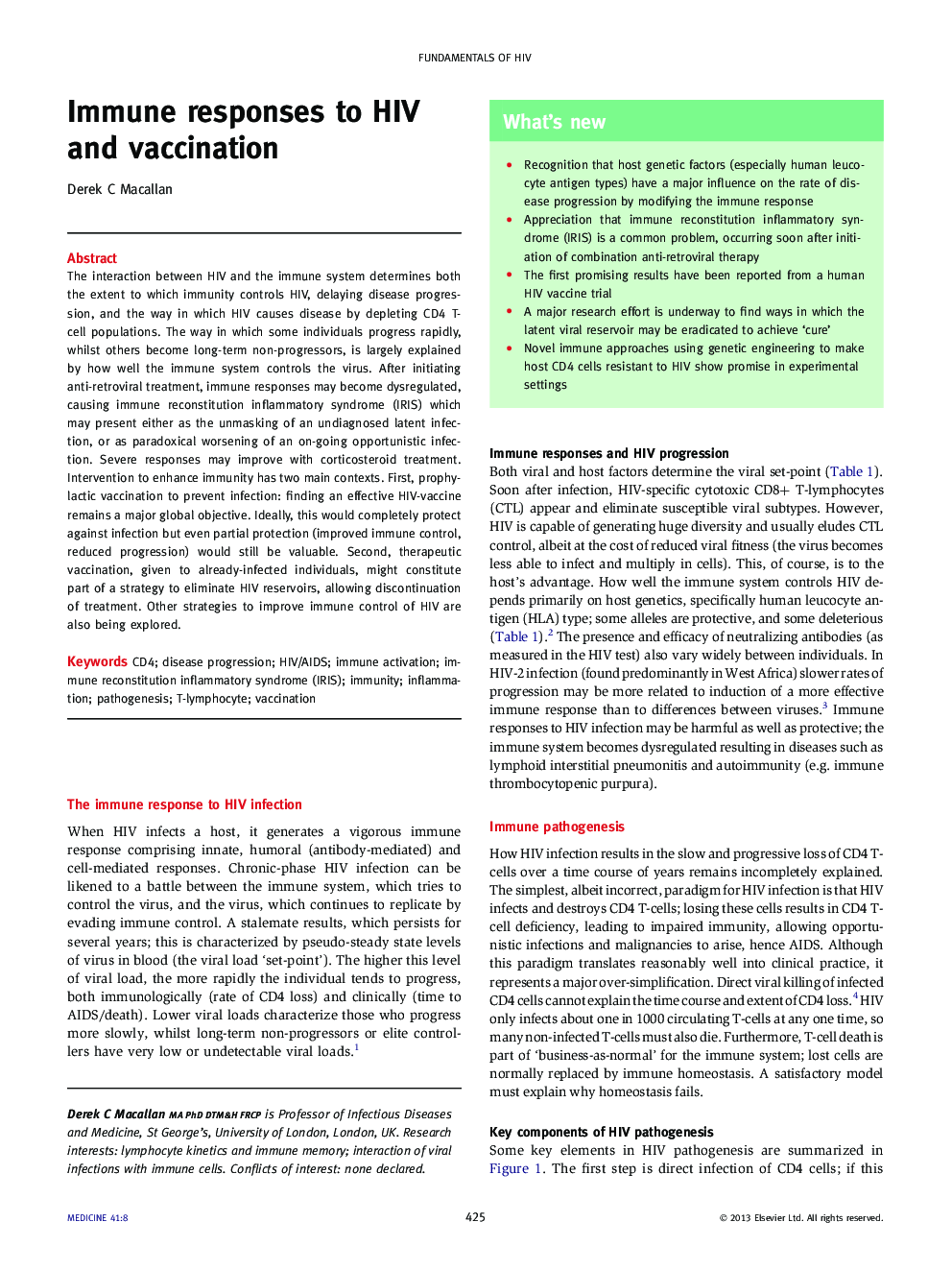| Article ID | Journal | Published Year | Pages | File Type |
|---|---|---|---|---|
| 3807161 | Medicine | 2013 | 5 Pages |
The interaction between HIV and the immune system determines both the extent to which immunity controls HIV, delaying disease progression, and the way in which HIV causes disease by depleting CD4 T-cell populations. The way in which some individuals progress rapidly, whilst others become long-term non-progressors, is largely explained by how well the immune system controls the virus. After initiating anti-retroviral treatment, immune responses may become dysregulated, causing immune reconstitution inflammatory syndrome (IRIS) which may present either as the unmasking of an undiagnosed latent infection, or as paradoxical worsening of an on-going opportunistic infection. Severe responses may improve with corticosteroid treatment. Intervention to enhance immunity has two main contexts. First, prophylactic vaccination to prevent infection: finding an effective HIV-vaccine remains a major global objective. Ideally, this would completely protect against infection but even partial protection (improved immune control, reduced progression) would still be valuable. Second, therapeutic vaccination, given to already-infected individuals, might constitute part of a strategy to eliminate HIV reservoirs, allowing discontinuation of treatment. Other strategies to improve immune control of HIV are also being explored.
